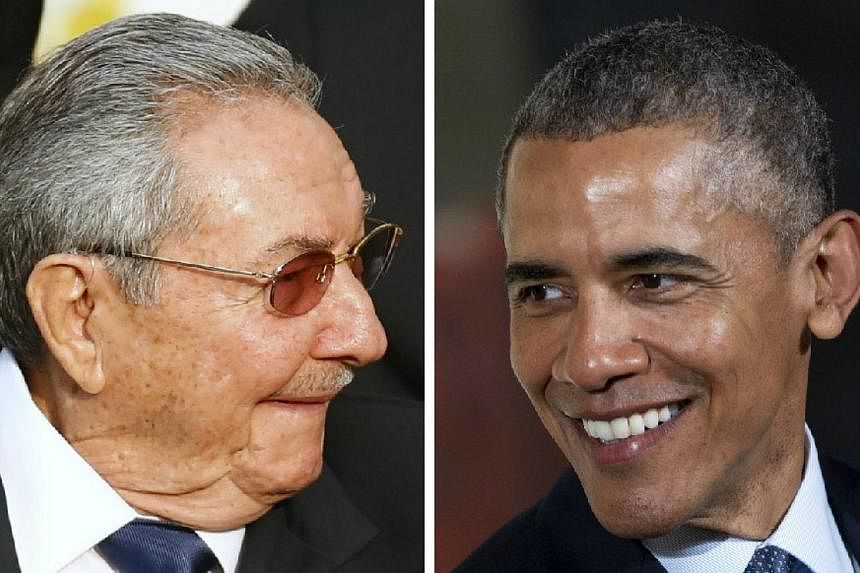US President Barack Obama and his Cuban counterpart Raul Castro will have a historic face-to-face encounter at the Summit of the Americas in Panama City this week, breaking the ice after decades of glacial relations.
While the meeting will mark a major milestone, the two sides still have a list of outstanding issues to work out. Here's a quick look at some of them:
1. Reopening of embassies
Priority number one for the neighbours who have not spoken to each other since the 1960s is re-establishing full diplomatic relations and turning their Interests Sections into embassies. They have had these offices in each other's capitals - under Swiss auspices - since 1977. Not having normally functioning full embassies is a big inconvenience for both countries.
2. Compensation for nationalised property
The US says Cuba owes American citizens and businesses US$7 billion (S$9.5 billion) in assets seized after the Cuban revolution in 1959. Some of these assets include vacation homes and bank accounts of wealthy individuals. But the lion's share of the assets are sugar factories, mines, oil refineries, and other business operations belonging to US companies including Coca-Cola Co., Exxon, and the First National Bank of Boston. A 2009 article in the Inter-American Law Review describes Castro's nationalisation of US assets as the "largest uncompensated taking of American property by a foreign government in history."
Cuba, however, said in September that the full US economic embargo in place since 1962 has cost it US$116 billion. Havana wants Washington to drop its sanctions faster. But the embargo is codified in laws that mainly must be dismantled by the Republican-led Congress opposing Mr Obama on most fronts.
3. Shuttering Guantanamo Bay
Cuba wants US troops to leave Guantanamo Bay which they have occupied since 1903. The detention facilities at the Guantánamo Bay Naval Station houses detainees of the US-led war on terror. Washington says it pays Cuba rent for the base under an old treaty with a legal provision that makes the lease permanent unless it is terminated by mutual agreement. But the Cuban government, which came to power in the revolution of 1959, does not honour the treaty and has long demanded the return of the land, saying it is a violation of international law.
4. State sponsor of terrorism?
Since 1982, the US has included Cuba on the State Department's list of state terror sponsors. But Cuba has always denied sponsoring terror and wants to be removed from the list now that both countries have agreed to restore relations. Mr Obama has ordered a review and the State Department is reportedly closing in on a decision to recommend removal of Cuba from the list.
5. Restoring direct postal service
Even before they announced a diplomatic turnabout last year, the two countries started work in 2013 on restoring direct postal service. Though they are not there yet, the conversation is moving along well, said William LeoGrande, author of "Back Channel to
Cuba".
6. Shutting down anti-Cuba broadcasters
Cuba wants the US to shut down Radio Marti and TV Marti, US government bodies which broadcast anti-Cuban government messages.
SOURCE: AFP, REUTERS, BBC

